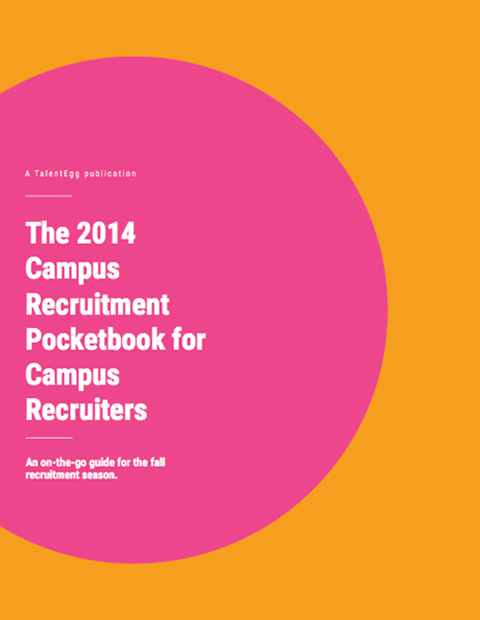If you have a campus recruitment session coming up, you’re probably bracing yourself for a busy day of shaking hands, presentations, and answering the same questions over and over. But as they say, a hectic day on campus is usually a great sign that students are interested in the roles that your company is hiring for.
That being said, these events leave very little time to actually get to know the students you meet. Let’s face it: after a few hours, faces and names begin to blur, and your attention is likely divided between their answers and the next thing on your to-do list.
You’re not ready to commit to a full interview with these eager applicants, but you should make the most of your brief interactions. These 3 questions can reveal a lot about a student or grad’s fit within your organization.
1. “What do you know about us?”
This is a common question – and for good reason. It’s a great indicator of a potential candidate’s preparedness, and their interest in the company. Most of the time, you will get one of two reactions: a confident, prepared answer, or a vague, broken response.
This is a highly effective tactic when dealing with a high volume of individuals. Inquiring about an applicant’s knowledge of the company is usually done during the face-to-face interview. However, asking this questions during a campus recruitment event is a great way to separate the students you meet into two categories: the ones who are browsing and the ones who are committed to joining your team.
Keep the question open ended, and see which direction the candidate takes their answer. Don’t ask for dry facts about the company – students know that you’re looking for those. Pay attention for the individuals who tie your organization’s mission to their own passions, and bonds with the company on a deeper level.
2. “What are you looking for a company to offer you?”
One important thing to note: you are not asking about what they can do for your company, but rather, what you can do for them.
When students engage with recruiters, most of them will do so with the goal of telling them what they want to hear. Even if they answer your questions with honourable intentions, it can make it difficult to determine whether or not they will fit in with your company.
This question flips the table on the student. You’re putting their needs before your own. “What do you need to advance your career? How can we help you succeed?” This is something that they will not expect – as a result, they are more likely to see your company as an organization that invests and cares about their employees. At the same time, you’ll be able to determine from their answers if they are the right fit for the culture and role that you’re hiring for. It’s a win-win!
3. “What are you passionate about?”
This is another opportunity to put the spotlight on the candidate. Most students and grads will have their core competencies, skills, and educational background rehearsed to a tee. They’re probably tired of rattling off their resume in an attempt to pitch their value to employers. And because they’re in “show mode”, recruiters will find it more difficult to assess their personalities and how they fit in.
The majority of students today associate their identities with some sort of social cause. They have work that they’re passionate about, and excited to share with others. Plus, people naturally jump at the chance to talk about things that they love with other people – giving them the chance will help them ease out of their “interview persona” and settle into their everyday personalities.
Of course, not all students will talk about social causes. Some individuals will bring up their hobbies or activities that they love to do in their spare time. Remember that these are still valuable experiences – and if they have the type of energy and enthusiasm that you’re looking for, then they may be someone you want to bring on board for a face-to-face meeting.
These 3 questions are not meant to be a full assessment of an applicant’s potential. However, it’s a great way to whittle down the volume of applications you receive at a campus event. On top of that, the types of questions you ask can show applicants that your organization is about more than finding top talent – it’s about listening to their needs and supporting them as they advance their careers.
Discussion: What time-saving tactics do you use when you’re working a campus recruitment event?



